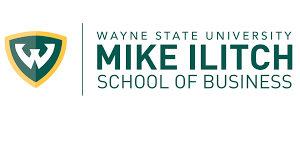Quantum Computing Lectures: Thought Leaders
“Quantum technologies are difficult to understand, but that will not stop the disruption this set of emerging technologies will bring in the next few years!”
― Kevin Coleman
Quantum Computing
The future of quantum computing is incredible!! Learn why!!
- Quantum computers will solve certain types of problems that are tremendous importance to humankind
- A fantastic and exciting future!
- unlock new ideas in computing
- What exactly is a quantum computer?
- fundamentally different from classical computers
- superposition / gate model
- new computing paradigm
- What is it good for?
- machine learning / optimization / manipulate molecules / cybersecurity
- When will we have one?
- depending on your definition
- the quantum age has now come
- at the very beginning
How is a quantum computer different?
Easiest way to understand is to compare to a classical computer.
Classical computers have bits that are in discrete states - either 0 or 1. Quantum computers have qubits that are in probabilistic states. (superposition)
Qubits can be represented on the Bloch Sphere. A qubit can exist anywhere on the surface.
Information encoded in a new way.
Classical computers can process in parallel or sequentially in time (classical parallelism).
Quantum parallelism and quantum interference are what make a quantum computer different.
Gates:
- classical NOT-Gate
- inverts the state
- takes 0 as the input and has 1 as the output
- quantum analog of this classical gate is the X-Gate
- rotates around the X axis
- from state 0 to state 1
- pi pulse - rotates the Bloch vector 180 degrees
- can rotate from any superposition
- rotates around the X axis
- classical XOR Gate
- control / target bit
- two bits as input
- quantum CNOT-Gate
- qubit x and qubit y
- qubit y depends on the state of qubit x
- Entangled state
- universal gate set
Universal Quantum Gate Algorithm
- input is superposition; gates operate in parallelism then interference
- goal of the algorithm designer is to ensure that by the end of the algorithm, one of the coefficient is close to unity and corresponds to the state that gives the answer to the problem
- the measurement process is probabilistic and leads to a classical result
Quantum Computers:
- represents a fundamentally new approach to information processing
- qualitatively different than computers today
- exponential growth
- suggests the potential for quantum advantage
- What is needed for quantum advantage?
- identify a useful problem
- no fast classical algorithms
- known fast quantum algorithms
